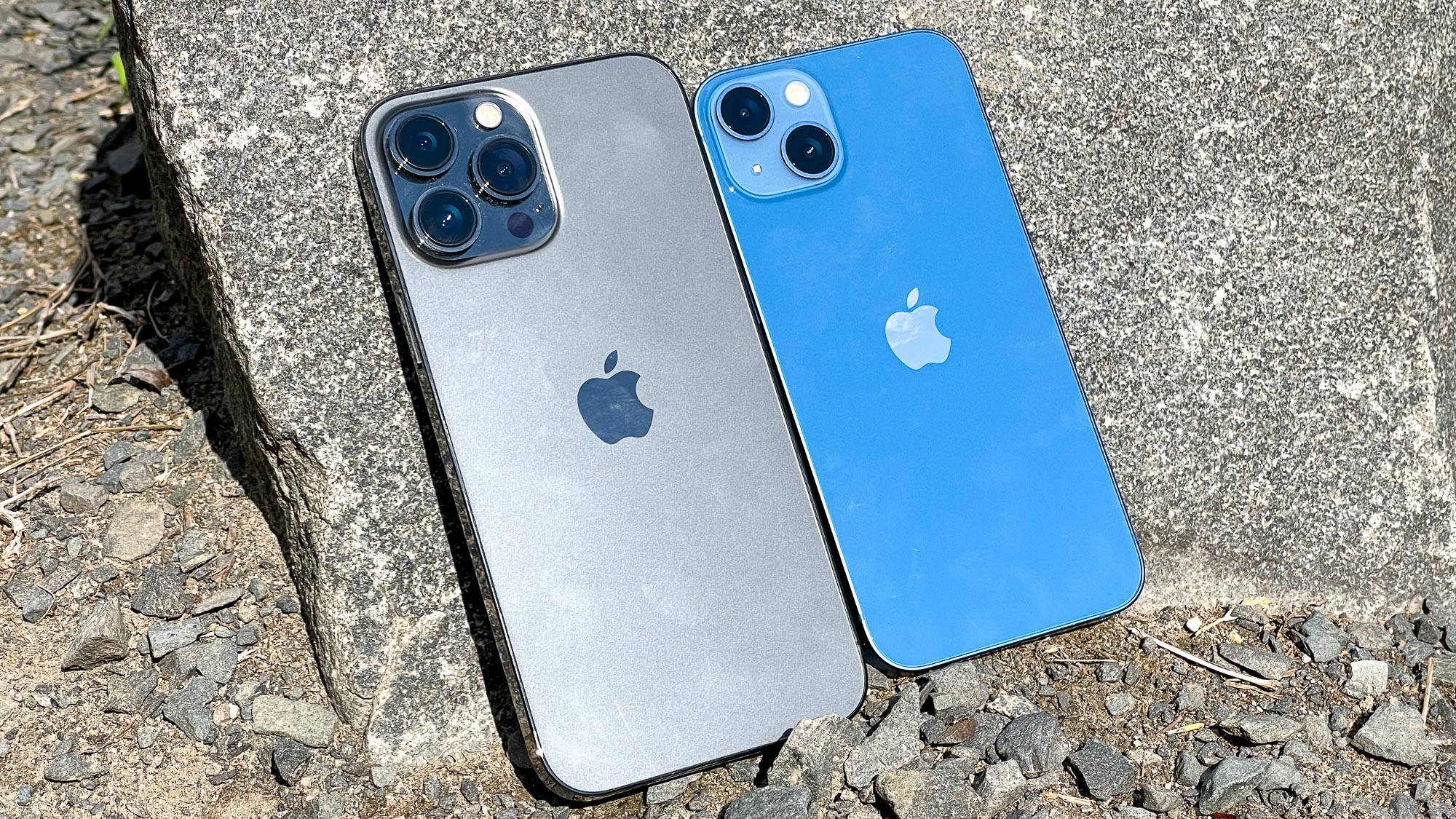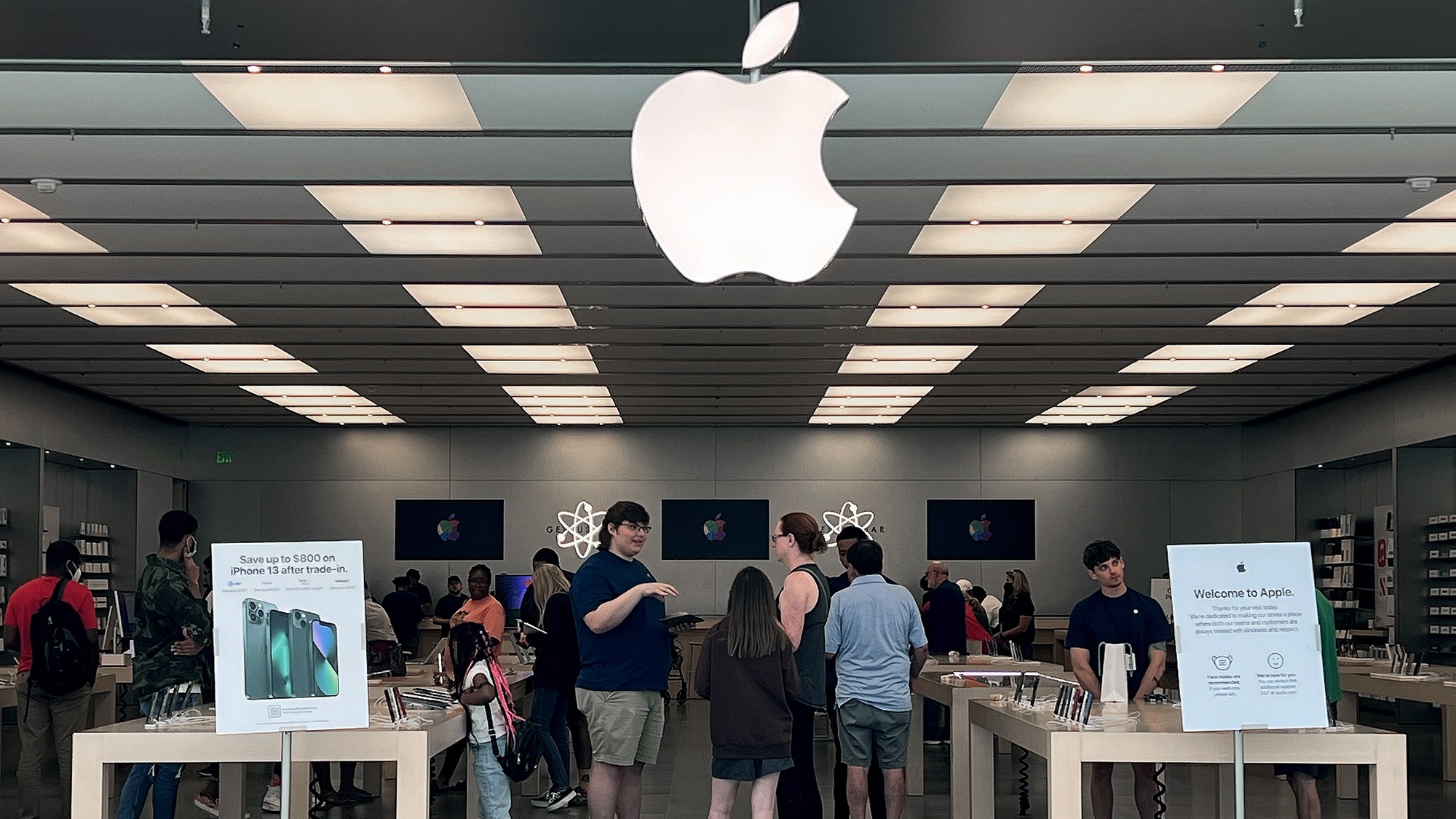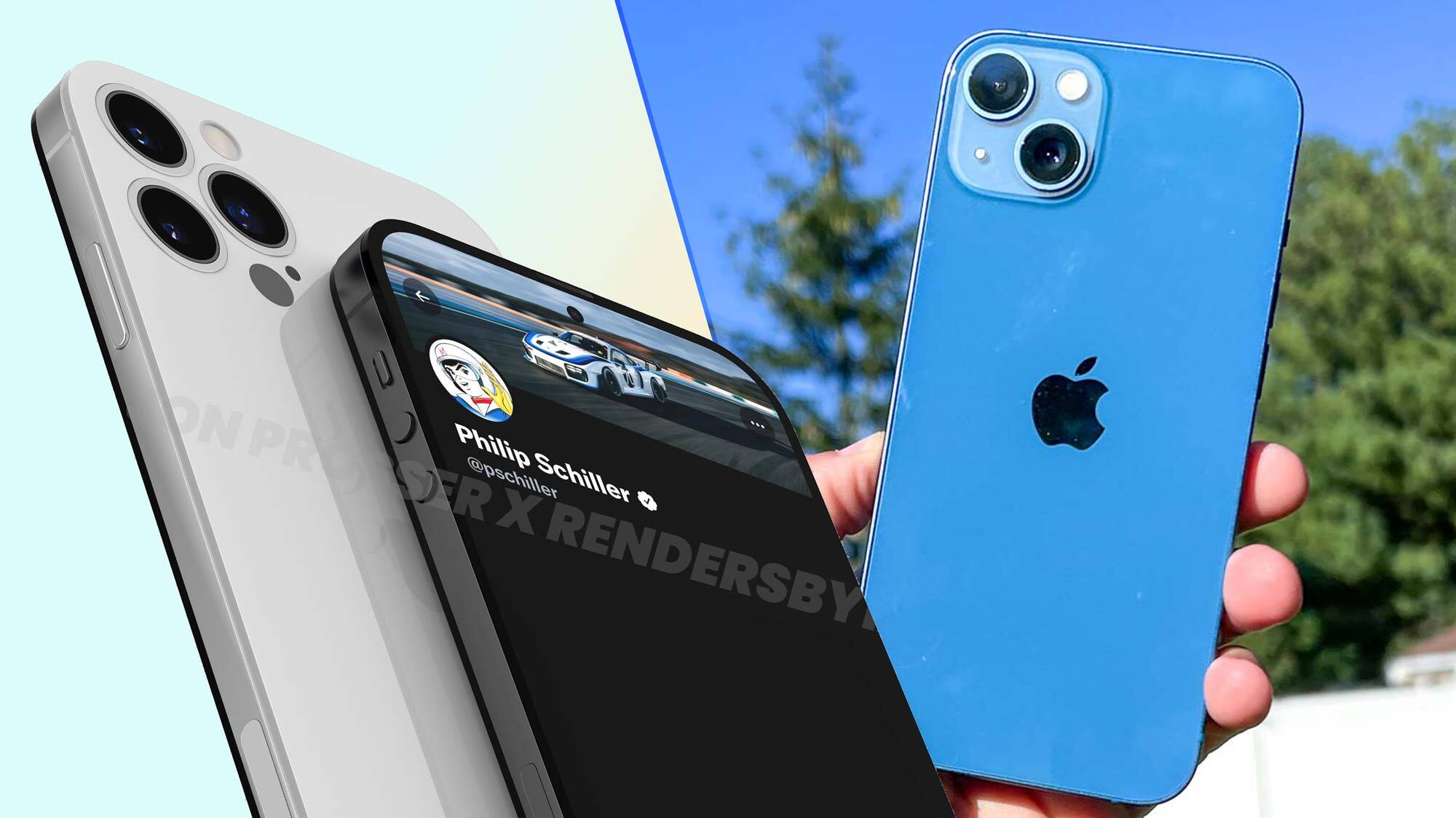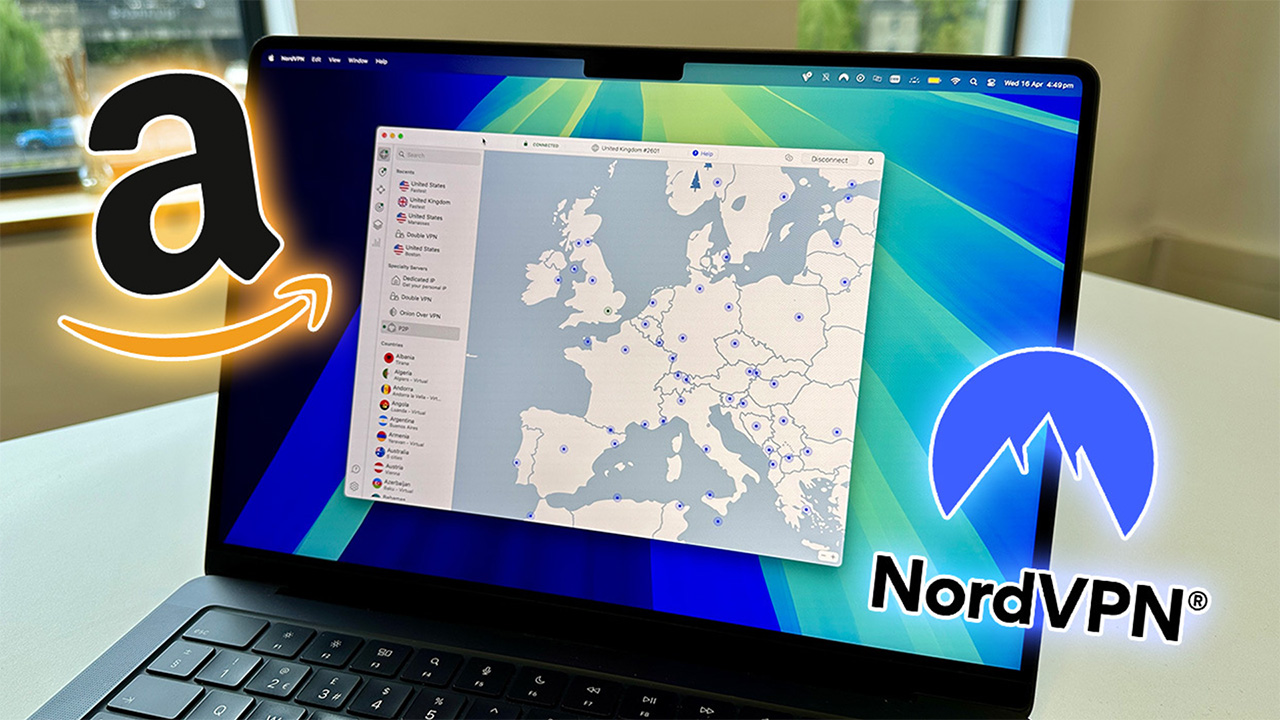You bought an iPhone right before the iPhone 14 launch — now what?
You've still got options if you've changed your mind about an iPhone purchase

Here at Tom’s Guide our expert editors are committed to bringing you the best news, reviews and guides to help you stay informed and ahead of the curve!
You are now subscribed
Your newsletter sign-up was successful
Want to add more newsletters?

Daily (Mon-Sun)
Tom's Guide Daily
Sign up to get the latest updates on all of your favorite content! From cutting-edge tech news and the hottest streaming buzz to unbeatable deals on the best products and in-depth reviews, we’ve got you covered.

Weekly on Thursday
Tom's AI Guide
Be AI savvy with your weekly newsletter summing up all the biggest AI news you need to know. Plus, analysis from our AI editor and tips on how to use the latest AI tools!

Weekly on Friday
Tom's iGuide
Unlock the vast world of Apple news straight to your inbox. With coverage on everything from exciting product launches to essential software updates, this is your go-to source for the latest updates on all the best Apple content.

Weekly on Monday
Tom's Streaming Guide
Our weekly newsletter is expertly crafted to immerse you in the world of streaming. Stay updated on the latest releases and our top recommendations across your favorite streaming platforms.
Join the club
Get full access to premium articles, exclusive features and a growing list of member rewards.
Wiser heads than mine have been saying it better than I could — now is the worst time to buy a new iPhone. New iPhones are coming soon — very soon. We even have a well-sourced iPhone 14 release date rumor now that gives you a pretty good idea of exactly when Apple's new phones are coming. So let's just say it one more time so that even people in the back can hear us — don't buy an iPhone until you see what the iPhone 14 and iPhone 14 Pro models have to offer.
But what if, after all that, you went ahead and did buy an iPhone?
Look, maybe you weren't aware Apple is being tipped to unveil the iPhone 14 on September 7. Maybe your desire for a new Apple handset overwhelmed all sense of restraint. Maybe you just didn't realize that new iPhones come out every September like clockwork. These things happen. But it doesn't change the fact that you've bought an iPhone with a new model waiting in the wings, and you might be experiencing a twinge of buyer's remorse.
Buck up. You still have options that keep the door open to replacing your hasty iPhone purchase with whatever model Apple ends up unleashing in a few weeks, though those option are admittedly limited. But if you have bought a new Apple phone just before Apple launches something new and likely improved, these are the steps you can take to enjoy something approaching a do-over.
Option 1: Take advantage of Apple's return policy
If you bought your new iPhone directly from Apple, you have the option to take back the device under Apple's return policy. Apple's standard policy lets you return undamaged hardware within 14 days of purchase. You'll need to include any accessories and packaging with your return, and Apple requires either the original receipt or a gift receipt. Meet those criteria, and you should be able to get a refund.

Returns are a little more complicated if you bought your iPhone through a wireless carrier or independent retailer, as each one has their own return policy. You'll want to contact the entity you bought your phone from to see what the return window and requirements are.
Getting back to Apple's 14-day policy, that would mean if the iPhone 14 does debut as expected on September 7, any phone bought on or after August 25 would fall within Apple's return window. If you made an iPhone purchase before then, you'll want to consider whether to return your phone right now — assuming that the purchase was made within the last 14 days, of course.
Get instant access to breaking news, the hottest reviews, great deals and helpful tips.
That 14-day window also applies to price protection at Apple, and that's relevant if you did buy an iPhone prior to the rumored September 7 event and end up keeping the device. Even after launching new phones, Apple often keeps older models around but at reduced prices — we've got a list of the current iPhones that are likely to remain on sale once the iPhone 14 arrives. Should Apple cut the price of the phone you've bought within 14 days of purchase, you can ask the company to be refunded the difference between what you paid and what the device now costs.
Note that price protection only applies to permanent price cuts and not temporary sales or iPhone deals.
Option 2: Use your iPhone to maximize your trade-in value
Both Apple and phone carriers accept trade-ins of older phones in exchange for price rebates on new models. That's likely to continue once the iPhone 14 debuts. So if you like what you see when Apple shows off its new phones, you can trade in whatever device you just bought to shave some money off the cost.
The bad news is that you're not going to recoup all of the money you just spent on a new phone with a trade-in. But you will take a big chunk out of your iPhone 14 upgrade, especially since newer, undamaged phones fetch the biggest return. For example, if you were to buy an iPhone 13 Pro right now, trading in an iPhone 12 Pro or iPhone 12 Pro Max would you get your rebates of either $500 or $600, respectively. And that's after Apple recently scaled back the size of trade-in rebates since we're so close to the iPhone 14 launch.

Trading in a phone you've just bought certainly isn't a conventional strategy. But should the iPhone 14's new features wind up turning your head, you do have a way to knock down some of the cost of a new device. Just be sure to consult our iPhone 14 vs. iPhone 13 comparison first to make sure that the announced changes are worth it.
Option 3: Stick with the iPhone you just bought
Look, just because you sprang for a new iPhone a little earlier than you should doesn't leave you with a subpar handset. Any of the iPhone 13 models rank among the best iPhones Apple has ever offered, and that's not going to change no matter how impressive the iPhone 14 and iPhone 14 Pro wind up being.
Even if you don't have the latest and greatest hardware from Apple, your iPhone 13 is still a very capable device. And if rumors about the iPhone 14 and iPhone 14 Max prove to be accurate, your current phone will even be running on the same chipset as those newer models. Throw in Apple's generous support policy — the upcoming iOS 16 release will work on phones that came out five years ago — and your prematurely purchased iPhone is still going to be in tip-top shape for some time to come.
Philip Michaels is a Managing Editor at Tom's Guide. He's been covering personal technology since 1999 and was in the building when Steve Jobs showed off the iPhone for the first time. He's been evaluating smartphones since that first iPhone debuted in 2007, and he's been following phone carriers and smartphone plans since 2015. He has strong opinions about Apple, the Oakland Athletics, old movies and proper butchery techniques. Follow him at @PhilipMichaels.
 Club Benefits
Club Benefits











